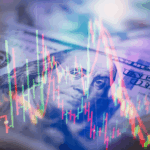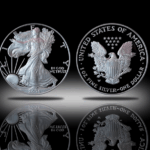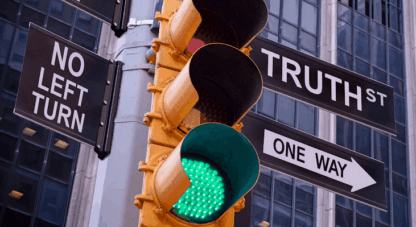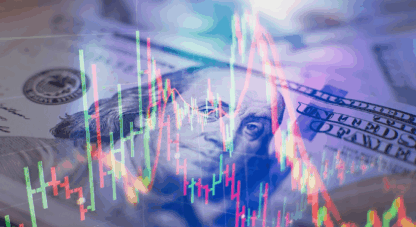Globalism seems to be in danger as a mutual economic system among nations. Still, it appears to be calling the shots regarding worldwide economic difficulties. While trade barriers, supply-chain issues, and the emergence of a multi-polar world pose significant challenges to free trade, we do seem to be going down the drain together economically.
Such is the nature of a debt-based system where countries hold each other’s debt. Borrowed money can be quickly spent and its benefits used up, but the debt remains. That’s where we seem to be today. The party’s over, now we need to pay off the credit card.
A big part of this problem appears to be the use of fiat currencies and central banks. Money becomes very plentiful when banks can conjure new currency on a whim. But modern currencies are brought into existence via debt—borrowed into being. So, as money proliferates, so does debt. And America has increased the money supply by trillions of dollars in recent years. Will the Fed survive the fallout? Will other central banks around the world?
Another part of the problem is the re-emergence of political centralization across the globe. Putin in Russia, Jinping in China, Modi in India, Erdogan in Turkey, and even many Western leaders are reducing the choices their people can make in politics, private life, business, and belief. Representative government is on the wane; strong men or more restrictive governments are calling the shots. But the problem is that strong-arming countries tend to be less productive across the board than free countries—typically by a wide margin. They have more economic crises, and recoveries tend to be less robust.
The McAlvany analysts look deeply into these trends this week. Be sure to check out one or more—or all—of these incisive communiqués. You’ll find a very confusing world a lot less hard to understand, and you’ll gain insight as you seek to face today’s challenges—and tomorrow’s.
Key Takeaways:
- The Fed seemed to speak out of both sides of its collective mouth after its most recent FOMC meeting—dovish sounds emanated from the meeting, but post-meeting statements by the Chair were uber-hawkish.
- China faces governmental and economic challenges of the first order—it seems to be channeling Wile E. Coyote: off the cliff, running hard, not yet falling, but above a valley floor that seems to be a mile below.
- Precious metals are still down, but not excessively—still showing stability and strength in the midst of great political and economical uncertainty globally.
The McAlvany Weekly Commentary: As Xi Jinping solidifies his absolute control over the People’s Republic of China and as China becomes more susceptible to economic collapse, analysis abounds. Some voices are more informed and authoritative than others, and David and Kevin present some of these more credible analysts along with their thoughts. Any way you slice it, China has some rough sledding ahead. Will Xi succeed in suppressing his opposition? Can he keep the PRC economy from melting down? Can he prevent China’s best and brightest minds from fleeing the country? Be sure to listen to this week’s Commentary for an informed analysis of these and other important issues.
Credit Bubble Bulletin: Evincing respect for the current Fed chairman, Doug Noland, acknowledges that Powell is traveling a lonely and unpopular road. “His Fed has made historical mistakes, but he’s determined to make amends. “Distinguishing himself from his predecessors (back to Greenspan), the Fed Chair is not kowtowing to the financial markets. A further departure from the past: Powell’s a straight shooter. He probably planned on a balanced approach, though the more Powell earnestly answered questions [in his post-FOMC meeting press conference], the more his inner Volcker came through.” Be sure to read this week’s CBB for more on Chairman Powell’s unenviable position and analysis of world markets.
Hard Assets Insights: Morgan also focused much of his analysis on the Fed and its “Potomac Two-Step.” The initial dovish-sounding statement released after the FOMC meeting that raised the fed funds rate another .75 percent was almost immediately contradicted by a Powell press conference in which the Chair doubled down—hard—on previous hawkish comments. Markets rose significantly on the initial statement but nearly broke their necks as they executed a severe about-face. “What had been a market rally abruptly turned into the largest post-FOMC intraday sell-off in history.” It’s a tale of schizophrenia writ large. Don’t miss Morgan’s incisive analysis of the two-step and larger picture in markets here and abroad.
Golden Rule Radio: Miles and Robert also provide some keen insights on the reaction to the FOMC statement and the Powell press conference. They delve into the hopes and expectations of investors who thought Wednesday would bring, along with the obligatory rate increase, clear indications that the pain would soon be ending, QE would soon begin anew. The warm and fuzzy Fed put would again work its magic on markets. If that sounds highly subjective, the hosts make precisely the point. Investors now respond more to Fed statements than to the facts that impact market risks and opportunities. True to form, the hosts look at how these crowd histrionics have affected the metals and conclude that a historically mild and healthy pullback might not be over. However, the new year could bring significant change. Be sure to listen for some of the most informed and incisive technical analyses you can find anywhere.















